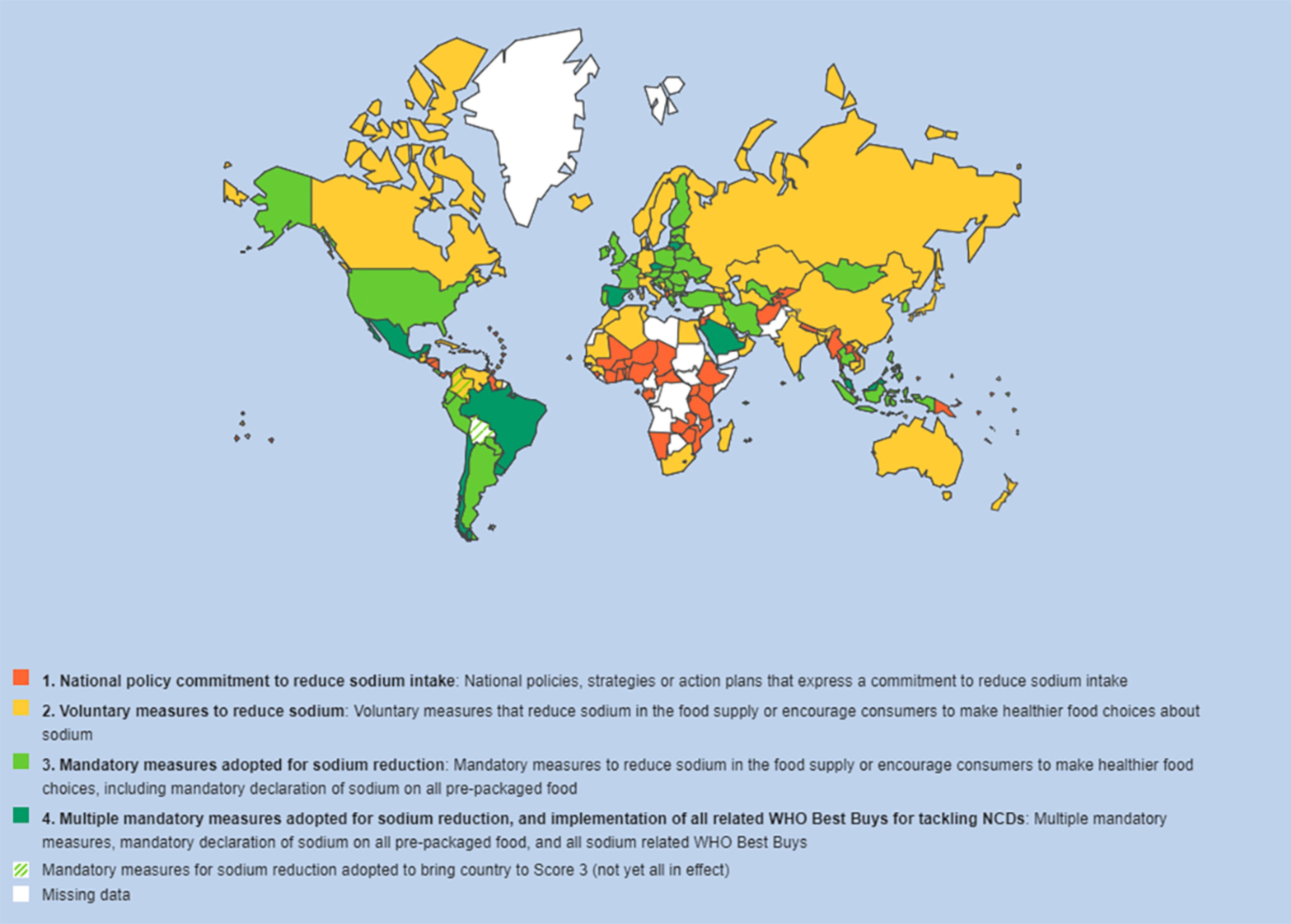WHO: Massive efforts needed to reduce salt intake and protect lives
The World health Organization recommends fewer than 5 grams of salt per day but estimates the average intake at more than twice that — 10.8 grams.
In a new report, the organization said the world is “off-track” to reach its global target of a 30% reduction in sodium consumption by 2025.
“Unhealthy diets are a leading cause of death and disease globally, and excessive sodium intake is one of the main culprits,” Dr. Tedros Adhanom Ghebreyesus, WHO director-general, said in a press release. “This report shows that most countries are yet to adopt any mandatory sodium reduction policies, leaving their people at risk of heart attack, stroke, and other health problems. WHO calls on all countries to implement the ‘Best Buys’ for sodium reduction, and on manufacturers to implement the WHO benchmarks for sodium content in food.”
According to the report, only 5% of WHO member states have mandatory sodium reduction policies, while 73% “lack full range of implementation of such policies.”
Only nine countries — Brazil, Chile, Czech Republic, Lithuania, Malaysia, Mexico, Saudi Arabia, Spain and Uruguay — currently have such policies in place, but WHO reported nearly 7 million people could be saved globally if other member states did.
The organization recommends four “best buy” interventions related to sodium reduction:
- Reformulating foods to contain less salt, and setting targets for the amount of sodium in foods and meals
- Establishing public policies to limit salt or sodium rich foods in hospitals, schools, workplaces, nursing homes and other public institutions
- Lower-sodium labeling on the front of packages to help consumers make healthier decisions
- Media campaigns to reduce salt and sodium intake

The United States is one of 43 countries that have adopted measures not only to lower sodium in food but also to encourage consumers to make healthier food choices, according to WHO.
According to the Mayo Clinic, the general consensus is that consuming too much sodium will increase risk of hypertension and stroke, and is linked to an increased risk of gastric cancer, obesity, osteoporosis and kidney disease.
“This important report demonstrates that countries must work urgently to implement ambitious, mandatory, government-led sodium reduction policies to meet the global target of reducing salt consumption by 2025,” Dr Tom Frieden said in the press release. Frieden is president and CEO of Resolve to Save Lives, a not-for-profit organization working with countries to prevent 100 million deaths from cardiovascular disease over 30 years.



